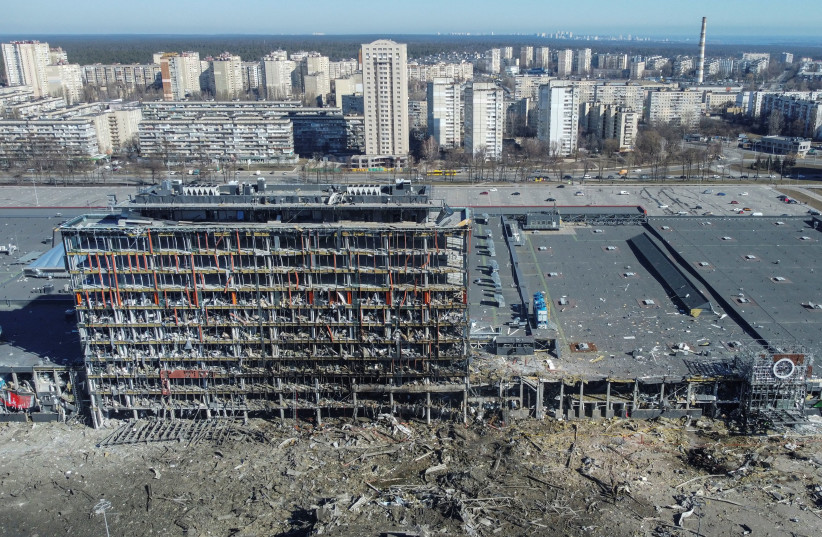The leaders of five Arab countries held a summit Tuesday in the coastal town of El Alamein, Egypt, to discuss the economic and social consequences of the Russian-Ukrainian conflict as well as cooperation on energy and food security and other issues.
For more stories from The Media Line go to themedialine.org
Egyptian President Abdel Fattah el-Sisi hosted UAE President Mohamed bin Zayed Al Nahyan, Iraqi Prime Minister Mustafa al-Kadhimi, Jordan’s King Abdullah II, and Bahrain’s King Hamad bin Isa Al Khalifa at the conference, held near the site of two historic battles between the Allies and the Axis in 1942.
"Saudi Arabia is not part of this meeting. Is this a means for Abu Dhabi to keep the lead on Arab affairs?
Rachid Chaker
Kadhimi, however, was forced to return to Baghdad earlier than scheduled to supervise the security forces protecting judicial institutions being stormed by the followers of Shiite politician and militia leader Muqtada al-Sadr, Kadhimi’s media office said.
What is the purpose of the summit?
The Russo-Ukrainian war that began six months ago has severely damaged the global economy,
especially regarding energy and food exports. Both warring nations are normally large grain producers and exporters, activities that have been halted by the war, and the Western sanctions against Russia have blocked shipments from the world’s largest gas and second- largest oil exporter, causing prices of energy and food to soar across the globe.

Ibrahim al-Assil, a geopolitical scholar and a senior fellow at the Middle East Institute in Washington, said the summit in Egypt highlights the five nations’ ambition to strengthen intra- Arab cooperation, which will help them address regional security and economic challenges.
“The economic challenges, and food security in particular, have intensified after the war in Ukraine started. These new developments make cooperation in the region more important than ever,” he told The Media Line.
Nevertheless, the efforts on energy cooperation precede the war.
Dr. Hasan Alhasan, a research fellow for Middle East policy at the International Institute for Strategic Studies (IISS) in Bahrain, told The Media Line that a previous edition of the summit was held in 2019 and it did not include the Gulf countries participating in this one.
“The summit initially began in 2019 as a trilateral meeting to foster economic cooperation between Egypt, Jordan and Iraq, notably in the areas of energy and power generation,” he said, adding that the three states have since signed an agreement to connect their power grids, to allow “power-starved” Iraq to purchase electricity from Egypt and Jordan starting in early 2023.
Other agreements involve constructing a pipeline to deliver Iraqi crude oil to Jordan and Egypt and investing in industrial projects on the Jordanian-Iraqi border, Alhasan continued.
He pointed out that much of the natural gas that Egypt would use to generate the electricity would be supplied by Israel, which has recently approved the sale of additional quantities to Egypt via a new route that passes through Jordan.
“Israel’s backstage involvement could explain why the UAE and Bahrain, the only Arab Gulf nations to recognize Israel, have recently joined the ‘minilateral’ [partnership],” he continued. Additionally, the UAE and Bahrain could help to plug financing gaps for connectivity infrastructure projects that link cash-strapped Egypt and Jordan with Iraq, said Alhassan. Saudi Arabia’s absence from El Alamein raises several question marks.
Rachid Chaker, a researcher at Paris-Panthéon-Assas University, said in an interview with The Media Line, “Saudi Arabia is not a part of this meeting. Is this a means for Abu Dhabi to keep the lead on Arab affairs?”
Assil also stressed that “the absence of Saudi Arabia is remarkable.”
He added that Egypt is arguably the center of gravity when it comes to Arab cooperation, and that is one of the reasons the summit was held there.
Chaker noted that Cairo is trying to resume its role as a regional great power, and the summit is an occasion for it to reaffirm its influence in the Middle East. He added that in light of Egypt’s political conflict with Ethiopia over water rights, the summit is also a way to demonstrate that Cairo has allies in the region.
